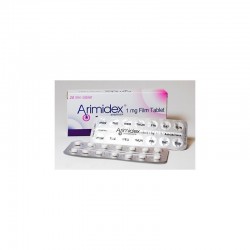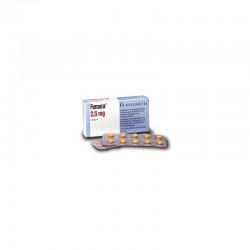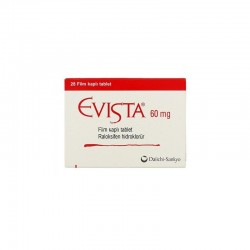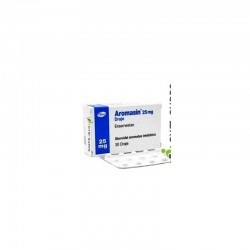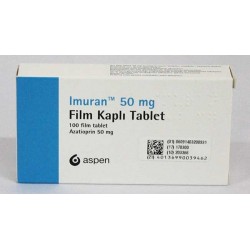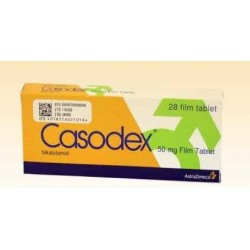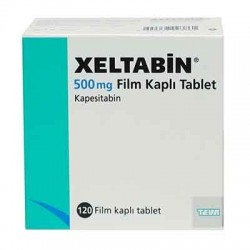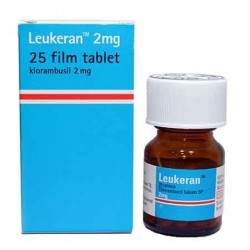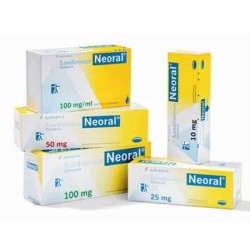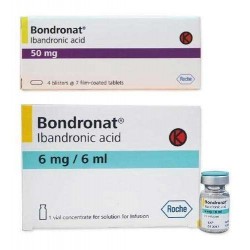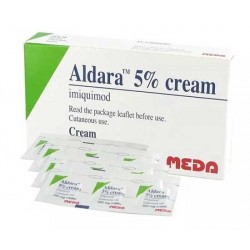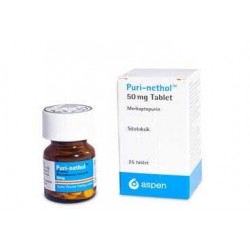Where can I buy Anti-cancer medicines online?
You can get your anti-cancer medications through our online pharmacy medozino.com
What is cancer and what causes it?

Cancer is a disease caused by genetic changes that change a cell's behavior. Different mutations affect the DNA and regulate different aspects of a cell's life. These change...
Where can I buy Anti-cancer medicines online?
You can get your anti-cancer medications through our online pharmacy medozino.com
What is cancer and what causes it?

Cancer is a disease caused by genetic changes that change a cell's behavior. Different mutations affect the DNA and regulate different aspects of a cell's life. These changes can be at different levels and occur through various mechanisms. A chromosome can be lost or gained through an error in mitosis. The body's immune system also plays an important role in fighting off cancer. However, cancer can still be prevented by making lifestyle changes and screenings.
Among the most common causes of cancer are environmental factors, tobacco use, and radiation. Air pollution, tobacco smoke, and radiation can also cause cancer. But it is important to remember that cancer is not contagious. You cannot pass it on to another person unless you are pregnant or donating your organs. But oncoviruses are transmissible. Hence, you can spread it to your loved ones by avoiding these environmental conditions.
The transformation of a normal cell into a cancerous one is a continuous process. Initially, small errors accumulate and compound, allowing cells to escape further control. It is this rebellion-like process that makes evolution a negative phenomenon in humans. It goes against the design of the body. This ongoing process is called clonal evolution and accelerates the progression of the cancer towards more aggressive stages. This is why the treatment strategies need to be tailored to the individual.
When a cancerous cell starts to grow uncontrollably, it is considered to be cancer. This disease can start anywhere in the body. It can occur in the brain, the colon, the lungs, and other tissues. The body's trillions of cells are made up of healthy cells and abnormal cells. The normal process of cell division requires the death of damaged cells. When this process does not happen, the cancerous cells multiply and grow, causing tumors. In time, these tumors can destroy the surrounding normal cells, damaging healthy tissues.
The main cause of cancer is a virus. A virus can cause a cancer in the same way that a virus does. The most common type of cancer is lung cancer. A tumor is an abnormal growth of cells in the body. It can invade other organs and tissues. It may also affect other tissues. Some of the types of cancer are caused by a number of factors. For example, people who use tobacco or air pollution may be at greater risk for the development of lung cancer than people who do not smoke or are not exposed to these harmful substances.
What is cancer and what causes it? Basically, cancer is an uncontrollable growth of abnormal cells in the body. It can invade any part of the body, and is caused by a damaged or abnormalized DNA. For this reason, many cancers can be classified as "hereditary" and are inherited. If you were diagnosed with a hereditary condition, it is important to have a complete x-ray and MRI.
In general, cancer is caused by abnormal cell division. A normal cell should grow in the right proportions, and then stop growing and die as soon as it no longer grows. Usually, cancer is caused by a virus that replicates and multiplies cells. But, there are cases where the tumor is a cancer of the same organ. It can also be a result of an inherited disease. The symptoms of the disease are often similar in both types.
Cancer is a disease in which cells grow uncontrollably. It can start in almost any part of the body. There are different types of cancer: benign and malignant. The most common types of cancer are breast cancer and prostate cancer, though both genders are affected. A person may have a cancerous tumor in one area, while a benign tumor in another may not. The most common type of tumors are located in the body.
The most common cause of cancer is genetic mutation. Although some people are born with a genetic mutation, many other people are born with it. Only a few percent of cancers are caused by the genetic mutations of their parents. In contrast, most cancers are caused by mutations of genes in the body. There are several factors that can lead to genetic changes in a person. To date, the most common factors that cause cancer are not completely understood.
What is cancer medicine and why is it used for?
When you have cancer, your doctor may recommend chemotherapy or immunotherapy drugs. These medications are effective against cancer cells and help you live a more comfortable life. They also reduce your pain and shrink your tumor. These methods are known as adjuvant therapies, and they are used in combination with other treatments when they do not work. The goal of chemotherapy is to shrink your tumor, and other treatments may be needed if your cancer recurs.
Some types of cancer treatment are highly effective. These include hormone-fueled cancers, which are caused by hormonal imbalances. For these types of cancer, a combination of hormone therapy and surgery is used. The surgery involves removing the hormone-producing organs. The drugs are usually administered in pill form or by injection. Hyperthermia is a form of radiation therapy that uses high heat to kill cancer cells. It is typically delivered by a needle.
Several types of chemotherapy are available, including targeted therapies, immunotherapy, and vaccines. The goal of these treatments is to eliminate the cancer from the body. The drugs used for cancer treatments are usually given in cycles that include doses on certain days, followed by a period of rest for the normal cells. Some types of cancer are resistant to the drugs, and these drugs are used to fight the disease.
The goal of cancer medicine is to control the disease. This type of therapy works by shrinking tumors and preventing the cancer from spreading. By controlling the growth of cancer cells, chemo can make the patient feel better and extend their life. However, if it has recurred, patients often use chemo to reduce their symptoms and prolong their lives. These types of treatments are called palliative chemotherapy and are often aimed at relieving pain.
The main goal of cancer medicine is to control the disease. This means that a patient can take different kinds of chemotherapy for the same disease. For example, chemotherapy is a type of systemic treatment, which can kill the cancer cells that are located far away from the primary tumor. On the other hand, radiation therapy is a form of local treatment, and is used for the same purpose. In both cases, the purpose of the treatment is to treat the symptoms, while minimizing the effects of the disease.
As mentioned earlier, chemotherapy and radiation therapy are both systemic treatments. When used alone, the drugs can have negative side effects, but the two are often effective in eradicating cancer. It is a way for physicians to identify the cause of a disease and select the best treatment. These medications are usually highly effective and can be very expensive, but they are not the only ways to treat cancer.
What are the medications used in the treatment cancer?
There are a number of different types of medications used in the treatment of cancer. Chemotherapy is one form of cancer treatment that uses chemotherapy drugs to shrink the tumor. Although chemotherapy can only be effective in reducing the size of the tumor, it can also improve a patient's quality of life. This drug is often given on a daily, weekly or monthly basis, depending on the stage and type of the disease.
There are many different types of cancer drugs. These include chemotherapy, hormone therapies, targeted cancer drugs, and bisphosphonates. Each of these treatments has its own set of side effects, so you should discuss your options with your doctor before deciding on a treatment plan. Each of these drugs has a specific side effect and should be used with caution. You can research your prescriptions to see which ones may be right for your condition.
Hormone therapy drugs work by interfering with the actions of the body's natural hormones, such as estrogen and testosterone. These drugs can either kill cancer cells or slow down their growth. They can also block the immune system's ability to fight cancer. However, it is important to note that many chemotherapy drugs can cause adverse effects, so you should discuss your treatment options with your doctor. When choosing a treatment plan, your doctor will recommend the best possible treatment plan based on the symptoms of your condition and your personal needs.
Anti-cancer medication dosage and cost
A recent study examined the relationship between anti-cancer drug dosage and cost. It looked at 30 oral cancer drugs across 41 indications. In contrast to the conventional pharmaceuticals, the researchers found that linear pricing increased the cost per mg by 60%, whereas flat pricing increased the cost per mg by 19%-100%. However, when doses were not adjusted, the cost per milligram of the drugs decreased by a significant amount.
To determine the effectiveness of linear pricing, patients were asked to compare the cost per dose reduction with that of linear pricing. The authors of this study found that drugs with flat pricing had higher costs per mg but no significant change in cost per cycle. This increases the total financial wastage, which has implications for cost-effectiveness. In future economic evaluations, flat-priced drugs should also be compared to the cheaper, older versions of the drugs.
As the cost of anti-cancer drugs increased over time, physicians should consider lowering the dose in an effort to improve patient outcomes. Although there are still many unanswered questions about the optimal dosage of the cancer drugs, there are several strategies that can make the process easier and more cost-effective. For instance, by reducing the dose, patients can receive less of these medications. Further, doctors should consider adjusting the dose of anti-cancer medications to avoid side effects.
How do anti-cancer medicines work?

In cancer, the immune system is weakened by chemotherapy, which destroys cancer cells and reduces the amount of healthy cells in the body. Fortunately, anti-cancer medicines can increase the number of healthy, cancer-fighting T-cells. Some types of anti-cancer medicine are more effective than others, so it is important to choose the right one for your condition. Listed below are three of the most common types of anti-cancer drugs.
Targeted therapies: These are drugs that target specific genes in cancer cells. These medicines aim to stop the growth and spread of cancer cells by blocking their growth. Unlike chemotherapy drugs, these medicines are less harmful to healthy tissues. They also work faster and more effectively because they target cancer cells' DNA rather than normal cells. This helps prevent cancer from returning. However, there are some side effects associated with targeted therapies, so make sure to speak with your doctor before starting a new drug regimen.
Biological response modifiers: These medicines are designed to enhance the immune system and fight the growth of cancer cells. They work by disrupting or stopping the growth of cancer cells. They are often considered separate from chemotherapy and are therefore less effective for normal cells. Herceptin (cetuximab) is a monoclonal antibody, and Provenge (r) is a treatment vaccine. Unfortunately, all anti-cancer medications have side effects, so it is important to consult your doctor if you have concerns.
How long does it take for anti-cancer medicines to work?
There are a few factors that determine how long anti-cancer medicines take to work. The most important factor is how the drugs are given. Some drugs, like chemotherapy, are given in cycles. Each cycle involves one dose a day and a rest period. Others, like immunotherapy drugs, are given continuously over a certain period. A course may last from three to six months.
A targeted therapy, or T-cell-targeting drug, interferes with the ability of cancer cells to grow and spread. This approach is less harmful to normal cells. While chemotherapy drugs target the cancer cells directly, targeted therapies focus on blocking their growth and spread. Some of these medicines target proteins in cancer cells. Other types of T-cells are treated with hormones. These medications are designed to slow the growth of cancer cells that need hormones.
During treatment, your doctor will give you an anti-cancer medicine. The medicines are usually given orally, and must be taken in the right dose. If you do not take them as prescribed, the medicine will not work. Your body's system will have to fight the cancer before it will be able to treat it. If you miss a dose, you will lose the benefits of the treatment.
Which anti-cancer medicines is right for me?
You may be wondering which anti-cancer medicines are right for you. Your doctor will prescribe you one or a combination of several drugs. These drugs are known as chemotherapy and are classified into groups based on how they work and what they are made of. Each group has different side effects, but the purpose is the same - to destroy cancer cells. Your doctor will likely recommend chemotherapy and immunotherapy for you.
Hormone therapy medications use the body's own hormones to slow cancer growth. They stop the growth of cancer cells by inhibiting their ability to produce and use the hormone. They are usually prescribed for leukemia, breast cancer, and ovarian cancer. They have some side effects, including vaginal dryness and menstrual irregularities. Some people may also be prescribed complementary and alternative therapies, like acupuncture.
There are different types of chemotherapy. In addition to the standard anti-cancer medicines, your doctor may also prescribe immunomodulating drugs. These medicines boost the immune system and are used to treat multiple myeloma. Small-molecule drugs target inside cancer cells and are usually administered orally. Monoclonal antibodies are used to attack cancer cells, attaching to specific targets on their outer surfaces. Both are considered targeted treatments and immunotherapy.
How long does anti-cancer medicines treatment last?

Most anti-cancer medicines are given in cycles. Each cycle has a rest period to help the body recover from the drugs. Chemotherapy treatments typically last two to three weeks. The length of the cycle depends on the type of cancer drug. Some drugs can be taken only the first day of the cycle, while others are given every other day or weekly. Once the course has finished, the patient can repeat the treatment.
In general, anti-cancer medicines are given for four to eight cycles. Each cycle is unique to the patient and the type of cancer. Most patients receive four to eight cycles of therapy. It is important to know the side effects of each drug and to follow the treatment plan to ensure that it is working as intended. Some people may experience long-term effects of certain chemo drugs, and they may need to change their schedule or choose another type of treatment.
Most anti-cancer drugs are given in cycles over several months. Each cycle contains a single or a combination of cancer drugs and a period of rest. Depending on the type of cancer and its symptoms, treatment cycles may vary. Some doctors may choose to use a single chemo treatment for a limited time if the patient is responding well to the first cycle. While some people may find that maintenance treatment works best, others may need to go through multiple cycles.
What are the side effects of anti-cancer medicines?
There are many possible side effects of anti-cancer medicines. The most common are listed below. There are some that are more rare, but you should tell your doctor about them if you notice them. Some medicines interfere with wound healing, causing old wounds to open up or new ones to not close properly. Other drugs can cause bleeding from the stomach or intestines. If you are planning on having surgery, you should consult your doctor and be sure to stop all anti-cancer medicines at least a couple of days before the procedure.
Certain anti-cancer medicines can affect healthy tissues or organs. You should talk to your health care team if you notice any side effects, as they can be treated. The types of side effects vary depending on your body's response to the treatment and the type of cancer. If you have a history of heart problems, you should consider diuretics. If you're having any unusual side effects, you should talk to your doctor right away.
Some cancer medications have side effects. These include hair loss, sores in the mouth, and cardiac anomalies. Some drugs can cause a decrease in immune function and permanent infertility. In some cases, the side effects of anti-cancer medicines can be severe enough to affect the person's ability to reproduce. To prevent these complications, you should speak to your health care team and discuss them with them.
Anti-cancer medicine use during pregnancy or breast-feeding
While some cancer medicines can harm an unborn baby, they are generally safe during the third trimester of pregnancy. These treatments also allow the mother plenty of time to recover from chemotherapy and other treatments. During this time, a baby's organs and body structure are developing. However, the risk of damage is much lower during the first trimester. It is still possible to nurse a baby while having breast cancer, and it is often recommended.
A prospective multicenter study performed by Amant et al. found that the children of women with breast cancer treated during pregnancy showed no increased risk of premature birth or fetal leukopenia. However, it was noted that the study period was short and that there were no differences between pregnant and non-pregnant women. Despite these findings, women with breast cancer should still talk to their doctors about the risks and benefits of using anti-cancer medicine during pregnancy.
Although cancer is rare during pregnancy, it can affect the unborn child. If you suspect that you are pregnant, you should discuss the risks and benefits of treatment with your doctor. If you are breast-feeding, the risk of transferring cancer to your baby is minimal. Therefore, there is no reason to avoid breastfeeding while receiving treatment. The doctor will discuss any possible risks and benefits with you and recommend the best treatment for your situation.
Can you buy Alzheimer's disease medication over the counter?
The most important question for cancer patients is, "Can you buy anti-cancer medicines over the shelf?" This is because many common medicines are available over the counter. These medicines may not have the same effects as the more expensive brands, and you may not be able to find one that works for you. Also, some cancer drugs are more expensive than their generic counterparts. In these cases, you may want to look for a different drug.
In some cases, you can purchase over-the-counter anti-cancer medicines. Some of these include Advil, Alleve, and Ibuprofen. However, if you're on chemotherapy, you should talk to your doctor first. Over-the-counter medications can mask symptoms of an underlying health problem. You can also take supplements or herbal products that can interfere with some cancer medications.
Some of the most common over-the-counter anti-cancer medicines are NSAIDs such as Advil, Ibuprofen, and Aspirin. Other medicines like natural botanical herbs have been shown to decrease the prostaglandins that contribute to cancer inflammation. Eight medicinal herbs have active constituents that inhibit the production of prostaglandin PGE2, which is a key factor in cancer inflammation. These medicines have been studied and approved by the FDA.
Anti-cancer Medicines list
ANTI-CANCER
Methotrexate 2.5 Mg 100 Tablets
QuantityDiscountYou Save2 5% Up to $2.403 10% Up to $7.204 15% Up to $14.405 20% Up to $24.00Methotrexate 2.5 Mg 100 Tablets ingredient Methotrexate METHOTREXAT "EBEWE" 2,5 mg tabletIt is administered orally.
Methotrexate 50 Mg 5 Bulb
QuantityDiscountYou Save2 5% Up to $2.703 10% Up to $8.104 15% Up to $16.205 20% Up to $27.00Methotrexate 50 Mg 5 Bulb METHOTREXAT "EBEWE" vial containing 50 mg / 5 mL concentrated injectable solutionIt is injected into the muscle, into the vein, into the artery, into the spinal cord.
Arimidex (anastrozole) 1 Mg 28 Tablets
QuantityDiscountYou Save2 5% Up to $4.903 10% Up to $14.704 15% Up to $29.405 20% Up to $49.00Arimidex 1 Mg 28 Tablets ingredient anastrozole ARIMIDEX 1 mg film tabletIt is taken by mouth.•Active ingredient: 1 mg anastrozole
Femara Letrozole 2.5 Mg 30 Tablets
QuantityDiscountYou Save2 5% Up to $5.903 10% Up to $17.704 15% Up to $35.405 20% Up to $59.00Femara 2.5 Mg 30 Tablets iedient Letrozole FEMARA 2.5 mg film coated tabletIt is taken orally.• Active ingredient: Each film-coated tablet contains 2.5 mg letrozole.
Evista Raloxifene 60 Mg 28 Tablets
QuantityDiscountYou Save2 5% Up to $3.403 10% Up to $10.204 15% Up to $20.405 20% Up to $34.00Evista 60 Mg 28 Tablets ingredient Raloxifene EVISTA 60 mg film tabletActive ingredient: Each film tablet contains 56 mg Raloxifene free base equivalent60 mg of Raloxifene Hydrochloride.
Aromasin (Exemestane) 25 Mg 30 Tablets
QuantityDiscountYou Save2 5% Up to $5.903 10% Up to $17.704 15% Up to $35.405 20% Up to $59.00Aromasin 25 Mg 30 Tablets gredient Exemestane AROMASIN® 25 mg drageeIt is taken orally.• Active ingredient: 25 mg exemestane
Hydrea (Hydroxyurea) 500 Mg 100 Capsules
QuantityDiscountYou Save2 5% Up to $4.903 10% Up to $14.704 15% Up to $29.405 20% Up to $49.00Hydrea 500 Mg 100 Capsules ingredient Hydroxyurea HYDREA 500 mg capsuleIt is taken orally.Active ingredient: 500 mg of hydroxyurea per capsule.
Imuran (azathioprine) Tablets
BUY MORE PAY LESSQuantityDiscount2 5%3 10%4 15%5 20%
Casodex (Bicalutamide) 28 Tablets
BUY MORE PAY LESSQuantityDiscount2 5%3 10%4 15%5 20%
Xeltabin (Capecitabine, xeloda) 500 Mg 120...
BUY MORE PAY LESSQuantityDiscount2 5%3 10%4 15%5 20%
Leukeran (Chlorambucil) 2 Mg 25 Tablets
BUY MORE PAY LESSQuantityDiscount2 5%3 10%4 15%5 20%
Sandimmun (Ciclosporin) 50 Capsules
BUY MORE PAY LESSQuantityDiscount2 5%3 10%4 15%5 20%
Bondronat (ibandronic acid) Tablets&Vial
BUY MORE PAY LESSQuantityDiscount2 5%3 10%4 15%5 20%
Aldara Cream 5% 12 Sachets
BUY MORE PAY LESSQuantityDiscount2 5%3 10%4 15%5 20%
Megace 160 Mg 30 Tablets
BUY MORE PAY LESSQuantityDiscount2 5%3 10%4 15%5 20%
Purinethol (Mercaptopurine) 50 Mg 25 Tablets
BUY MORE PAY LESSQuantityDiscount2 5%3 10%4 15%5 20%



